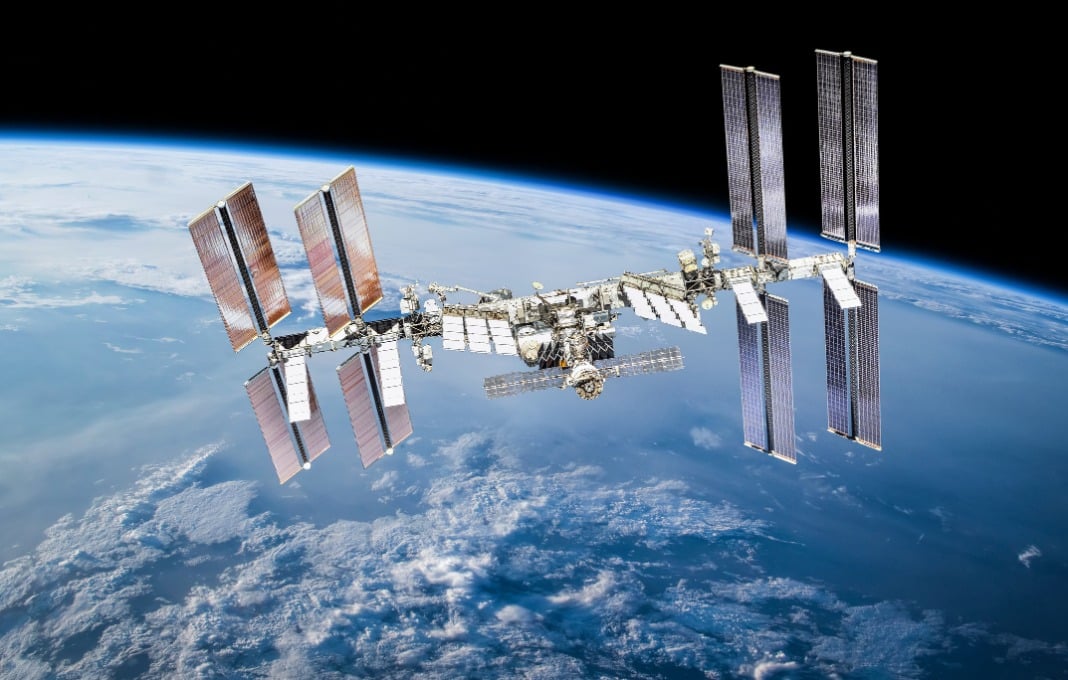Many businesses and industries will undergo significant changes in the coming decades as we navigate climate change, geopolitical uncertainty, artificial intelligence and other trends. Gaining ideas, inspiration and perspectives from the outside in is valuable. In that spirit, I interviewed Colonel Ron Garan, an individual whose career has not only traversed the skies but has also left an indelible mark on humanity. Ron is a decorated NASA astronaut, former fighter pilot, pioneering social entrepreneur and the CEO of iSpace, a lunar exploration company with a vision to extend human presence in outer space.
Having spent an impressive 178 days in space, Ron has orbited our planet 2,842 times, travelling more than 71 million miles. His experiences on the U.S. space shuttle and the Russian Soyuz spacecraft, along with his four spacewalks, have provided him with a unique perspective on our world. A view he passionately refers to as the “orbital perspective.”

This “outside-in,” as I like to call it, or “orbital perspective,” in Ron’s words, is built on three pillars. First, we need to look skyward. If nations can unite to build the International Space Station, think of what we could achieve by working together to address the challenges on Earth. Second, we need to look earthward. Viewing our planet from space reminds us that we are all passengers on this shared journey through the universe aboard the spaceship we call Earth. Finally, we must look forward. We live in a world where the only limits are our imagination and our willingness to act.
We do not have to accept the current state of our planet.
Ron explains that “We are not from the earth—we are of the earth.” Through his orbital perspective, he sees seven keys to achieving a brighter future.
- Maintain dual focus. “We need to zoom out to the big picture of the planet while also keeping the people on the ground in focus,” Ron said. It’s about seeing the global perspective, without losing sight of the individuals or local level. This concept extends to time as well, considering both long-term consequences and addressing immediate needs.
- Evaluate the realities of our opportunities. Our political, business and cultural systems are obsessed with growing the economy at any cost. They treat everything, even the planet’s life support systems, as if they exist to serve the economy. However, when viewed from space, it becomes clear that this thinking is flawed. Our society depends on the planet, and the economy depends on society. So, sustainability is not some eco-philosophy; it is just the reality of how things work. We need to shift our thinking accordingly.
- Unify as we are all in this together. Ron says, “After mutual respect and understanding are achieved, it is possible to establish real, sincere relationships, which is the foundation of a solid, long-term collaboration.” No single organization, country or group can bring about the vast changes we need for our future. It will take our collective ideas, creativity and efforts, and by connecting everyone, we will discover solutions from unexpected places.
- Take action. Great ideas alone do not change the world; actions do. The real breakthroughs come from people and organizations willing to take action on new, innovative ideas and partnerships that work across industries, borders and boundaries. That is when actual, positive and even disruptive progress happens. As Ron previously explained, “We are limited only by our imagination and our will to act.”
- Set aside fear. Following a space mission, Ron said, “I lay on my back, surprised at how calm and focused I felt, strapped to four and a half million pounds of explosives.” We are usually motivated by one of two things: fear or awe and wonder. Fear divides us and stops us from connecting with others who might hold the solutions we need. But awe and wonder open us up to new ideas and inspire.
- Choose a new guidepost for action. Right now, a two-dimensional map of countries, corporations and political parties shapes our worldview, all competing over resources and ideas. However, when you look at Earth from space, it becomes evident that this map is not accurate. We are all one species, travelling together on one planet toward a shared future. We cannot continue to use this outdated map to guide our actions. For humanity to move forward, we need to build a future based on interdependence, long-term thinking and deep collaboration.
- Broaden our definition of home. How we define home profoundly shapes how we solve problems, treat the planet and treat each other. Broadening our idea of home does not mean letting go of our roots, national identities or affiliations. It just means seeing them in the context of a much larger picture.
As I reflect on my interview with Ron Garan, I am reminded of his analogues from space, which offer additional profound lessons and perspectives for business.
- On leadership: Ron said it well, in that “at its core, leadership is the ability to notice that you are part of something bigger than yourself.” In space, visionary leadership often drives ambitious missions, whether it involves sending humans to the moon or to Mars. Leaders in business must inspire to push boundaries, motivating employees to achieve what seems impossible. Leaders also need to remain composed in high-stakes situations, supporting confidence among teams.
- On risk management. Business is fraught with risk. Space travel is no different. In this context, Ron argues, “NASA spends a lot of time and resources anticipating what could go wrong.” This approach translates into business, which requires consequential decision-making, balancing risks and rewards. Space programs often experience failures, which are viewed as critical learning opportunities. As I explore in my book, Outside In, Inside Out, risk management is a vital input to business strategy formulation.
- On complex decision-making: In space, astronauts, mission controllers and engineers base decisions on vast amounts of data. The ability to interpret and act on this data in real-time, while accounting for both immediate and long-term goals, teaches organizations the importance of harnessing data to make informed decisions. Space also teaches us to handle ambiguity and make critical decisions without all the information. In space, there is no room for delay, so leaders must evaluate trade-offs quickly and decisively.
- On partnership: Space missions, particularly those involving the International Space Station (ISS), are built on collaboration among various countries. This highlights the importance of cross-cultural partnerships, shared goals, and pooling resources for mutual benefit. Ron shares, “If we adopt the same collaborative mindset and practices that got to the moon and back and that built the International Space Station, we can do much more.”
- On human potential: Business success requires innovation, with humans at the center. Space exploration is no different, stretching the limits of human endurance, ingenuity and adaptability. It forces us to think beyond current capabilities, encouraging technological, medical and psychological breakthroughs. Technologies developed for space missions often find applications in business, from telecommunications to medical devices, underscoring how striving for seemingly unattainable goals can bring widespread benefits.
Space travel teaches us to embrace challenges, prepare meticulously, collaborate widely and push the boundaries of human ability. In leadership, risk management, decision-making, partnership and unlocking human potential, the lessons from space exploration offer profound outside-in insights into how we can adapt to our earthbound business challenges.








